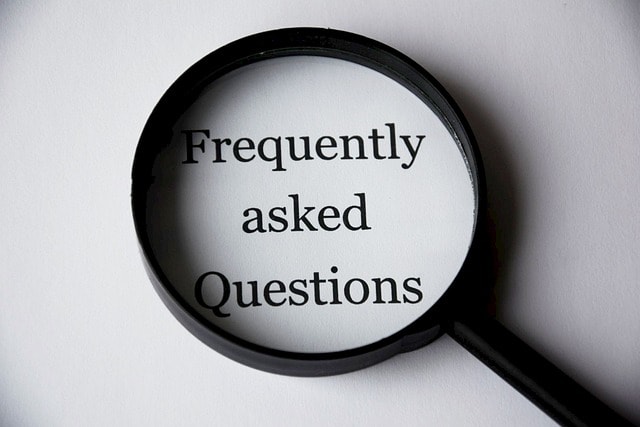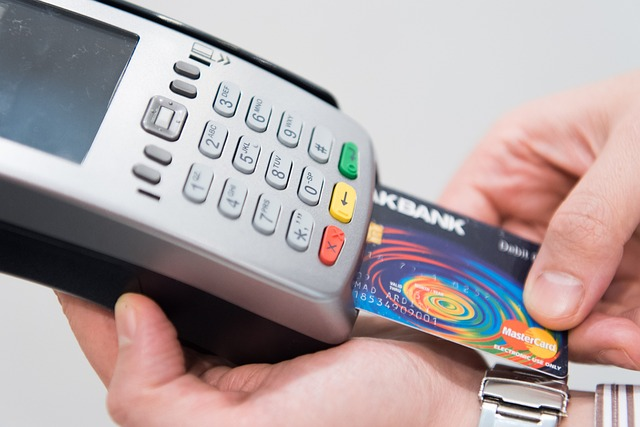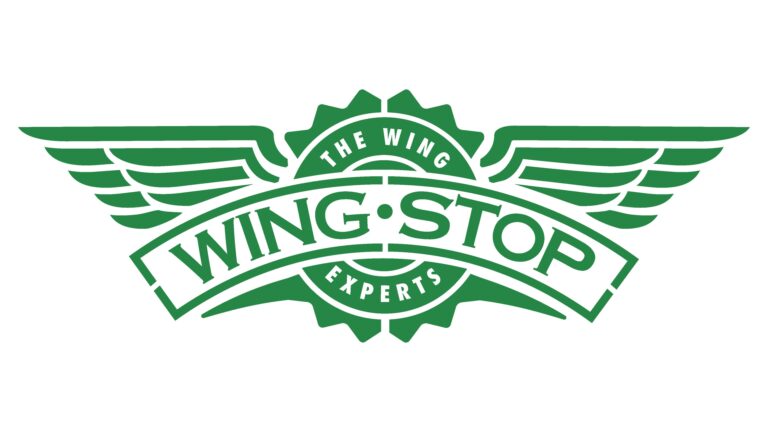What does being Self-Employed mean?
Self-employment means working for oneself, which is different from being employed by a company. Self-employed people can earn money through their own businesses.
Common forms of self-employment include:
- Freelancer: A self-employed individual who offers services to clients on a project basis.
- Consultant: A self-employed professional who provides expert advice to businesses or individuals.
- Sole proprietor: A self-employed person who owns and operates a small business.
- Independent contractor: A self-employed worker hired on a contract basis.
- Partners: Business owners in a general partnership are typically considered self-employed.
- LLC Members: Most business owners in a Limited Liability Company (LLC) are considered self-employed unless the LLC opts to be taxed as a corporation.
The US Small Business Administration (SBA) doesn’t distinguish between self-employed business owners and other small business owners. Its focus is on small businesses, meaning it’s primarily concerned if your operation meets the SBA size standards.
The primary distinction for self-employed comes from the Internal Revenue Service (IRS) and concerns how the business pays taxes. LLCs and general partnerships are considered pass-through entities, meaning the business’s revenue passes through to the business, and the business owner reports the revenue as income on their personal tax return. Freelancers and independent contractors also report revenue as personal income on their individual tax returns.
This differs from incorporated businesses that pay taxes at the corporate level with shareholders then paying individual taxes on any profits or dividends paid out to them. This is known as double taxation.
LLCs are a popular option because this hybrid model combines the liability protections of a corporation with the pass-through taxation of a self-employed business. Again, though, some LLCs can opt to be taxed as corporations.
Are there SBA Loans for Self-Employed & independent contractors?
SBA loans are available for self-employed individuals and independent contractors. These loans can help with various business needs. Applicants must show proof of income and stability in their business. This is key to getting approved.
Here are some of the best SBA loan options for independent contractors, freelancers, and sole proprietors.
SBA 7(a) Loan
- Maximum Loan Amount: $5 million.
- SBA Guarantee: Up to 85%.
- Terms: Up to 25 years for real estate; 10 years for other purposes.
- Interest rates: Starting at Prime + 2.75%
The SBA 7(a) loan program is a popular choice for small businesses, including self-employed individuals and independent contractors looking for financing. These loans can be used for various purposes, such as working capital, equipment purchases, and real estate acquisition. The program offers favorable terms and rates, making it an attractive option for those looking to grow their business.
SBA Small Loan
- Maximum Loan Amount: $350,000.
- SBA Guarantee: Up to 85%.
- Terms: Up to 25 years for real estate; 10 years for other purposes.
- Interest rates: Starting at Prime + 2.75%
The SBA Small Loan is a subset of the SBA 7(a) loan program designed to provide smaller loan amounts that may be more accessible for self-employed individuals such as freelancers and independent contractors. These loans offer financial assistance to help these individuals start or grow their businesses without extensive collateral or credit requirements, making it a viable option for those in non-traditional employment arrangements. Getting an SBA small loan may be easier than other SBA loans.
SBA Express Loan
- Maximum Loan Amount: $500,000.
- SBA Guarantee: 50%.
- Terms: Up to 7 years if used as a line of credit.
- Interest Rates: Cannot exceed Prime + 6.5%.
The SBA Express Loan is a fast-track loan program designed to provide small businesses with expedited access to funds for various purposes, such as working capital, equipment purchases, and debt refinancing. This loan program allows for a quicker approval process with reduced paperwork requirements, making it an attractive option for small businesses needing timely financial assistance.
SBA Microloan
- Maximum Loan Amount: Up to $50,000 ($13k average).
- SBA Guarantee: N/A.
- Terms: Up to 6 years.
- Interest Rates: 8% – 13%.
SBA Microloans are small loans that help entrepreneurs start or expand their businesses. They can be used for various purposes, such as purchasing equipment, inventory, or working capital. The maximum loan amount for an SBA Microloan is $50,000, making it an accessible funding option for self-employed workers. Small business owners typically apply to intermediary lenders for these loans.
How do I qualify for an SBA Loan if I’m Self-Employed?
SBA loan qualifications can vary by lender, but typically you need at least two years in business, good personal credit scores, and substantial revenue. Approved businesses we work with here at UCS usually meet the following minimums:
- Personal credit score: 650+.
- Time in business: 2+ years.
- Annual revenue: $360k+.
Specific SBA Requirements
The SBA also has specific requirements for loan applicants:
- Must be a for-profit business.
- Must operate in the United States.
- Must have invested equity in the business.
Special Considerations for Self-Employed
Self-employed small business owners should also be aware that they must provide proof of business income. It is in your best interest to have a separate business bank account, as most SBA-approved lenders require business bank statements to verify income. In addition, it may be beneficial to form an LLC, even if you’re an independent contractor or freelancer, to create more legal separation between yourself and your business entity. You can form a single-member LLC.
Documentation Requirements
SBA loan applications require extensive documentation. You should be prepared to provide:
- Personal identification (driver’s license, passport).
- Social Security number.
- Proof of income (tax returns, profit and loss statements).
- Business financial statements (balance sheet, income statement).
- Business plan (see more below).
- Business credit score and history.
- Business license and registration documents.
- Personal and business bank statements.
- Collateral documentation (if applicable).
Business Plan
A detailed business plan is crucial when applying for an SBA loan because lenders want to see a specific roadmap of how the loan funds will be utilized. This includes outlining clear objectives, strategies, and financial projections for the business.
Lenders need to ensure that the borrower has a solid plan to generate revenue and repay the loan. By providing realistic repayment budgets, borrowers demonstrate their ability to manage finances responsibly and mitigate risk for the lender.
A well-thought-out business plan not only increases the chances of securing an SBA loan but also sets the foundation for a successful and sustainable business.
What are the benefits of SBA Loans for Self-Employed?
SBA loans offer self-employed individuals competitive interest rates ranging from 5% to 10%, saving money in the long run. With repayment terms of up to 25 years, borrowers can manage payments effectively.
Access to counseling and resources helps with business planning and management, which is crucial for success. Funds can be used for various expenses like equipment, operational costs, hiring employees, and enhancing operational capacity. Responsible loan management can improve credit profiles, leading to better financing options in the future.
What are the drawbacks of SBA Loans for Self-Employed?
The extensive application process for SBA loans can be daunting for self-employed individuals. It involves a significant amount of paperwork and a lengthy timeline for completion, which can result in missed opportunities for those needing quick access to funds.
Stringent eligibility requirements, such as good credit scores and solid business plans, may exclude some applicants from qualifying. Collateral requirements add another layer of difficulty, as borrowers may need to secure the loan with business or personal assets.
SBA Loans for Self-Employed Pros & Cons
Pros:
- Lower interest rates compared to other types of loans.
- Longer repayment terms for better cash flow management.
- Access to larger loan amounts for business growth.
Cons:
- Lengthy application process with extensive documentation requirements.
- Strict eligibility criteria may exclude some self-employed individuals.
- Personal guarantees and collateral are often required for approval.
How do I apply for an SBA Loan?
United Capital Source has partnerships with selected SBA lenders. This allows us to approve and distribute loans in as little as three weeks. Here’s how to get started:
Step 1: Make Sure You Qualify
If you’re looking for long terms and the lowest possible interest rate, make sure you fulfill the general requirements with flying colors. Your credit score should be well over 650-700, and your cash flow should be highly consistent month-to-month.
Also, since SBA Loans are designed for large-scale investments, you should be able to support your desired investment with sufficient data. This is the only product where the funds’ purpose plays a considerable role, regardless of where you apply.
Step 2: Gather Your Documents
SBA Loans require the following documents and information:
- Driver’s License.
- Business license or certificate.
- Voided Business Check (for business bank account information).
- Bank Statements.
- Credit Report/Statement of Personal Credit History.
- Business Tax Returns.
- Credit Card Processing Statements.
- Personal Tax Returns – 3 Years.
- Business Tax Returns – 3 Years.
- Business Plan.
- Personal Financial Statement.
- List of Real Estate Owned.
- Debt Schedule/Loan/Rent/Lease Documentation.
- Deeds/Title/Ownership documentation for any collateral/Security.
- Current Profit & Loss Statements and Balance Sheet Year-to-Date.
- A/R and A/P Reports.
- United Capital Source 1 Page Loan Application.
Step 3: Fill Out the Application
You can begin the application process by calling us or filling out our one-page online application. Either way, you’ll be asked to enter the information from the previous section along with your desired funding amount.
Step 4: Speak to a Representative
Once you apply, a representative will contact you to explain the repayment structure, rates, and terms of your available options. This way, you won’t have to worry about surprises or hidden fees during repayment.
Step 5: Receive Approval
SBA Loans through our network generally take 3-5 weeks to process. Once approved and your file is closed, funds should appear in your bank account in a few business days.
Frequently Asked Questions
Here are the most common questions about SBA loan options for self-employed business owners.
Can I use an SBA Loan to pay myself?
SBA loans can provide working capital for business owners. This money can help pay for various expenses, including salaries. However, it is essential to note that self-employed individuals may face challenges.
Self-employed people often have their business and personal finances intertwined, making it hard to separate business income from personal income. For example, if a self-employed person takes an SBA loan, they may want to use part of it to pay themselves. This is not always straightforward. The SBA typically expects the funds to support business operations and growth. Check with your lender before using the funds to pay yourself a salary.
How hard is it to get a SBA Loan when Self-Employed?
Getting an SBA loan when self-employed can be challenging due to the lack of traditional income documentation. Self-employed individuals often face stricter requirements, such as providing detailed financial records and a solid business plan.
Additionally, inconsistent income or a short business history can make qualifying for an SBA loan harder. Lenders may also be more cautious when assessing the risk of lending to self-employed individuals, leading to higher interest rates or lower loan amounts. Overall, obtaining an SBA loan as a self-employed individual can be more complex and time-consuming than acquiring one for traditional businesses with employees.
What are the SBA Loan Alternatives for Self-Employed Business Owners?
Self-employed individuals have various alternatives to SBA loans, such as online loans.
Traditional Bank Loans: Traditional bank loans for self-employed individuals typically offer lower interest rates than other financing forms, making them an attractive option for those looking to borrow money. However, qualifying for a bank loan as a self-employed business owner can be more challenging due to the stricter requirements and documentation needed to demonstrate financial stability and income consistency.
Self-Employed Business Loans: Some online lenders specialize in providing small business loans to non-traditional borrowers, including self-employed business loans. These loans are similar to traditional business loans but often have less stringent eligibility requirements. The tradeoff is that these loans may carry higher interest rates and fees due to the perceived increase in risk level.
Business Credit Cards: Business credit cards can be a convenient alternative to SBA loans for self-employed business owners. They offer quick access to funds, flexibility in spending, and the ability to earn rewards on business expenses. However, it’s essential to carefully manage credit card debt and pay off balances in full each month to avoid high interest charges.
Personal Loans: Personal loans can be a viable alternative to SBA loans for self-employed business owners. These loans are typically easier to qualify for and can provide quick access to funds without extensive documentation. However, it would be best to be cautious about mixing personal and business finances.
Alternative Business Loans: Alternative business loans are popular for self-employed business owners who may not qualify for traditional SBA loans. These online business loans can come from online lenders, credit unions, or even peer-to-peer lending platforms. While interest rates may be higher than SBA loans, alternative business loans offer flexibility and quick access to funds for self-employed individuals.
You may be interested in one of the following small business loans:
- Bad credit business loan.
- Business line of credit.
- Business loans for women.
- Business term loans.
- Equipment financing.
- Invoice factoring.
- Merchant cash advance.
- Revenue-based loan.
- Working capital loans.
- ERTC advance.
SBA Loan Options for Self-Employed Business Owners: Final Thoughts
Navigating self-employed SBA loans can be tricky. Understanding the requirements, benefits, and potential drawbacks helps you make informed decisions.
These loans can provide crucial support for your business, but weighing your options carefully is vital. Explore your choices and take action. Whether you decide on an SBA loan or an alternative, ensure it aligns with your goals.
Contact us if you have more questions or to apply for a small business loan. Our alternative financing experts can help you find the best option for your business needs.





















